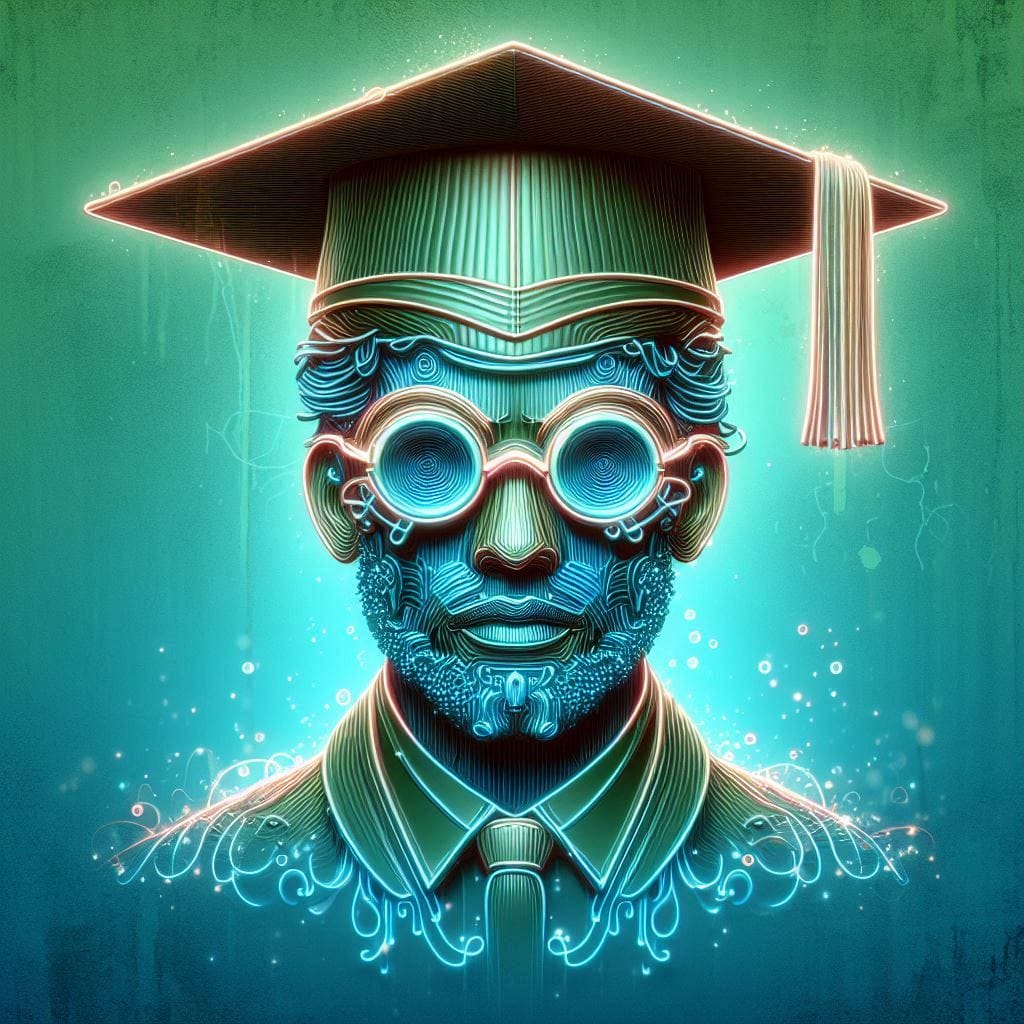The AI-Induced Knowledge Surplus
Reassessing Graduate Education's Value in an AI World

As someone with multiple graduate degrees, the proliferation of Large Language Models (LLM) like ChatGPT has made me question how valuable these programs will be in the near future.
The Changing Landscape of Graduate Education
In the not-so-distant past, advanced degrees like Master's and PhDs symbolized not only deep expertise but also exclusive access to specialized knowledge. Obtaining these degrees required significant investment and personal sacrifice, and employers recognized that value. But what happens when the very commodity (i.e., advanced knowledge) that graduate education provides becomes ubiquitous, accessible, and instantaneously retrievable by anyone with an internet connection and a crafty ChatGPT prompt?
The Rise of AI and the Democratization of Knowledge
Generative AI tools offer unprecedented capability to generate human-quality insights, answers, analyses, and even original ideas based on vast datasets that were previously difficult to access or parse. This represents a profound shift in the way knowledge is created, accessed, and utilized, with substantial implications for higher education, particularly at the graduate level.
Shifting ROI on Graduate Education
Historically, the Return on Investment (ROI) for obtaining an advanced degree was clear. Graduates possessed unique expertise and knowledge that employers desperately sought, positioning themselves as scarce and valuable. But as AI democratizes this knowledge, the exclusive intellectual advantage traditionally associated with graduate education begins to diminish.
This shift doesn't necessarily mean graduate education will become obsolete overnight. But it may imply significant recalibration. Universities and employers must now grapple with what truly differentiates humans in an age of abundant machine-generated expertise. The emphasis may shift away from the acquisition of knowledge itself and toward developing uniquely human skills:
- creativity
- critical thinking
- nuanced judgment
- ethical reasoning
- emotional intelligence
- interpersonal communication
Practical vs. Theoretical Degrees: A Divergent Impact
Not all advanced degrees will experience this shift uniformly. Degrees that rely heavily on theoretical and abstract knowledge are more susceptible to disruption, as the primary value they offer (advanced theoretical understanding) can increasingly be matched by AI-driven insights. Conversely, practical degrees such as an MD (Medical Doctor), which require direct human interaction, hands-on skill, critical judgment under real-world conditions, and ethical decision-making, may retain more of their traditional value. Employers and society will continue to see substantial value in these practical, applied skills, which AI supplements but does not replace (for now 😉).
Changing Employer Expectations
Employers, meanwhile, will increasingly look beyond degrees as markers of value. They may prioritize demonstrated abilities in applying knowledge effectively, creatively, and ethically, rather than just the credentials of knowledge acquisition. Graduate students themselves must reassess the value of their investments, considering whether the debt and time involved remain justified as knowledge alone becomes more abundant and AI-driven.
Reinventing Education for Human Potential
The abundance of knowledge presents higher education with an opportunity to reinvent itself, redefining its value not in information transfer, but in cultivating distinctly human potential. Perhaps, paradoxically this could be the moment graduate education truly comes into its own. And not as a mere distributor of scarce knowledge, but as a cultivator of the very qualities that make us human in an age of non-human intelligence.
So while I'll continue questioning the value of some types of advanced education going forward, I will never second guess the educational commitments I've made in the past. After all, I wouldn't be in the fortunate career position that I am in now without completing graduate degrees.
